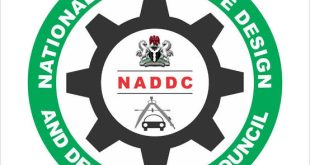Spokesperson of the Senate, Yemi Adaramodu speaks on the issues of the nationwide protest by SSANU and NASU amid strike threat, in this interview with with Geofrey Uzono on Channels TV. OLUMIDE OLUSEGUN brings excerpts.
What is your take on the issue of strike? We have seen intervention even by the National Assembly. While some have yielded results, some have not. In your view, what can Nigeria do to make sure that the issue of incessant strikes ends?
We will see that this current agitation by NASU and SSANU is just a cumulative of the former government’s actions and inactions. So it is not an occurrence that has been occasioned by the current government of President Bola and then government is a continuum and it means that whatever SSANU, NASU, or ASUU is demanding is very genuine and germane. Protest or strike is a civil way of asking questions from employers, and the Federal Government. And we believe that the federal minister of education will not allow it to escalate. They will call them to a round table for them to judge all instead of war, war. And then if there is any need for the National Assembly to intervene, as we have always intervened in such matters. I am very sure that at the end of the day, the best solution to it will be preferred. When ASUU had such issues that was how it was handled. Even at the 9th National Assembly, there were a lot of times that the legislators intervened. Where ASUU is now about the salaries and emoluments, and I am very sure that they have collected theirs and whatever happens to that of NASU and SSANU, I am very sure that the Federal Minister of Education will look at it, then do the needful where it is necessary. And by the time they come together this week, so if there’s any need for the National Assembly to intervene, definitely we will because we represent the people. So definitely we will not allow anything to fester. This time around, all hands must be on deck. We must make sure that any sector of our development must be guarded seriously and jealously, especially education, where our youth are seriously concerned. So we must not allow it to degenerate into a situation whereby it’s going to be another spate of very long strikes, whereby students will be driven back home to their parents again. No, we are not going to allow it. It’s not going to happen. And I am very sure that NASU and SSANU will be very reflective on this one. They have been very understanding, quite understanding for that matter. And this time around, it’s not going to be very different from what we have been having before when we intervened, and when, even before our intervention, a truce was found. And then there is peace.
From my last count, since 1999 till date, ASUU, for instance, has had over maybe 16 strikes. If you count the number of days, it’s maybe over four and a half years cumulatively. So that’s how much they have lost in terms of the academic calendar due to industrial action. And the National Assembly, whether it’s the House of Reps or the Senate, which you are seated in, is supposed to oversight this ministry. The language they use is that they do not see enough commitment that convince them that the government is serious, both from the Ministry of Education and the Ministry of Labour. And we know what the budget looks like for the Education Ministry. So what can the National Assembly do to put pressure on the government to attend to this as urgently as possible without necessarily waiting for it to fester?
Like I said earlier before this question, when a kind of situation like this is generated, maybe between ASUU, NASU, SSANU, and the Federal Ministry of Education, the National Assembly will have to first wait to analyse the problems between the two sides, and also allow them to negotiate. Like the popular saying in Africa, the person who is going to maintain the truce is not the one who is going to start the fight or the settlement of the fight. So definitely the National Assembly, which acts as the ombudsman, as the father of the two of them; the Federal Ministry of Education and the Labour, will not going to start it. This is the 10th National Assembly. It was not the assembly that was there since 1999 that there have been strikes or whatever. I am speaking on behalf of the 10th Assembly and for us, since we started last year, if you follow the trend, you would see that whenever there are any of such issues between the Labour and the Federal Government, we have always been intervened. Take for instance the NLC and minimum wage issues, we intervened. We intervene because we need a stable policy and a stable economy. Even even though we are expecting the executive to come to us to give us an executive bill, whereby we are going to enact or propagate a law that will establish the national minimum wage. So definitely the 10th National Assembly is very different from the previous assemblies.
We have had conversations across the board with some of these unions and all of that, the reference is always to the National Assembly. Most of the time, when the government comes to them and says, look at the fiscal challenges we are having, but the demands you are making, we could pro rata or we may not be able to pay, or whatever reason the government will give. They come back and say, members of the National Assembly go home with a humongous amount every month. And they don’t know what they are doing as to what they are doing as professionals in their field, in their own right, with due respect to the National Assembly. So the question is, is the National Assembly sometimes sitting down to look inward to ask themselves, why do people always refer to them? Is there something you can do in terms of cutting costs of your institution so that we can transfer some of this money to attend to other issues, just to be mild on this one?
Yes. Thank you very much, my great brother. Look, we have three arms of government. There is the legislative arm, there is the executive arm, and there is the judiciary. Now these three arms, have their separate budgets. The budget of the executive is where the Minister of Education takes theirs. That of the judiciary is where the courts and the other agencies under the judiciary take theirs. Then that of the National Assembly is for the legislation. And so our budgets are not interwoven. So what is due to the legislature will not be used as a sacrifice to the executive. And then the issue at hand is about allowances and salaries of SSANU and NASU members, which are not embedded in the budget of the National Assembly. So if they are asking for what belongs to them, I don’t think it is the National Assembly that will use their embodiment or whatever, either overhead or capital to satisfy that. So for this, don’t let us mix all these things. Now let us go straight to the issue of NASU, ASUU, and SSANU. ASUU had been answered to a very large extent. Then it now remains NASU and SSANU. So now let us sit down to talk to NASU and SSANU with the Federal Minister of Education. If there’s whatever we can do to make sure that there’s not going to be any kind of labour dispute, that is where we are now on this one. So the issue of saying that if a senator or a representative member, for him not take a salary, we have to use that salary to pay the arrears of lecturers. There are salary components in the budgets of the Federal Minister of Education, which had been appropriated appropriately.
Nobody’s trying to take your salaries. Nigerians say that as the National Assembly members, the money you’re getting for the job you are doing is too much and that It is time to scale down and cut costs.
Mr Journalist, before a journalist can allege and agree and ask a question, then it means that you have done a great investigation. What is that money that the National Assembly members are earning, that is impeding the progress of development in Nigeria? As I said, in the 2023 and 2024 budget; that of the National Assembly is not up to 1% of the whole budget. And the National Assembly is an arm of government. And within this budget, that is where the salaries of legislators are. That is where the salaries of all the auxiliary staff in the National Assembly are. That is where either the bureaucrats, the technocrats, or the support staff of the National Assembly, are more than 20,000, even up to 50,000. That is where that one is. Are you saying that the National Assembly that is doing the appropriation is not entitled to another budget?
How much does an average senator go home within a month? It’s a direct question.
Yes, it’s a direct question and I will give you a direct answer. The direct answer I will give you is that if I tell you it’s the 10 era, you will not believe it. You are a journalist. There is the Freedom of Information Act. Go and use it and find out and show the evidence openly to Nigerians so that no senator will come here or House of Representatives members will come here at night. That is the best way to get it.
It is not a combat, it is just a question. You are the one that is earning.
If you tell me a figure and I now dispute it, how are you going to stop this?
Just give Nigerians a figure. I am not going to say the figure I have, but give Nigerians a figure. Your money is public money. We know how appropriation is done. It’s a simple question. How much do you earn? Nobody’s going to doubt your position.
My brother, when something becomes controversial, then the third party which you are as the journalist, you are supposed to establish the veracity. You have to establish the truth. Please use that act. Get to it and just present it to Nigerians that this is what a House of Assembly, a House of Representatives, and the Senator has. Not allegations because at times.
Distinguished, I don’t want to belabor the issue. I knew why I asked that question. I know the budget of the National Assembly. We know how these expenditures are done. You are the spokesperson of the Senate. So it’s within your right to help us understand the things we don’t know. So if we don’t have that information, which we do, we’ll ask you.
You cannot bring somebody, an offender to the court. And you are now asking the offender to provide you with the evidence. You want the National Assembly to provide you with evidence. Is it possible? The evidence that it is going to provide is going to be evidence that will support it.
Distinguished, I want to move on so that I don’t belabor the issue. I knew why I asked that question and I know why I wanted a response from you, but you refused to answer the question.
Mr Journalist, I want us to belabor it. I want us to rest it once and for all. Write a letter to us through the office of the Clark of the National Assembly and ask.
Distinguished, can you just hold on? Isn’t it time for us to begin to look at cutting the cost of governance, which is the core of my question? I will tell you why. If you look at what’s going on in Kenya, it’s a clarion call to the continent. Young people rose and they are demanding accountability. Simple economics says that when there’s scarcity, we optimise. And by optimising, we prioritise. On the scale of preference, we take out the things that are not necessary, at least, that are not wanted and we attend to things that are needed. So in your view, despite your argument about your money and your payment, isn’t it time for us to begin to cut costs from the side of government?
Thank you very much. My Oga journalist. The government of President Tinubu has started to cut costs already by making sure that some agencies, some departments, and even some institutions are rested so that we can streamline any agency, any department, and any institution, that has the same maybe roles assigned to it with other existing MDs that they are now streamlining them to one. So that one is a major way of cutting costs. Another major way of cutting costs, which I know that the government is doing is that one, like the federal minister for works. Just a few days ago, he told all Nigerians that, yes, there are so many roads that have been contracted before, which money had already been paid for but the contractors refused to move on. Some contractors moved on to the site. They did a sukesuke (shady) job and they went away. They are going to revoke. The only thing is that don’t revoke a loan. Whoever has taken more than the money that he has utilised to do what he’s supposed to do, prosecute that person. So these are ways of cutting costs. These are ways that the government can conserve funds. Some people are talking about having a bicameral legislature. They said why must we have the House of Representatives and the Senate? Why can’t we have only one? I said, okay, it is not bad. But even those climes that we want to emulate, let’s look at it. In the UK, they have 650 members in the House of Commons. In France, they have about 577. The population in the UK is just about one-third, even less than one-third of the population of Nigeria, and they have 650. In Nigeria, in both the House of Representatives and that of the Senate, we have 469. Are we going to say that we are too many to make laws for Nigeria? In another way, some people are saying, oh, why can’t the National Assembly be part-time? Yes, it is not bad. Why can’t the Executive be part-time? Do we need ministries that will be full-time? They can rule on the phone during COVID. We were in our houses and we were doing so many things. Then in the judiciary, we can go to court only when it is necessary, when there are cases. So everybody will be part-time in Nigeria. Look, let us come to terms with what can make Nigeria great. What can progress Nigeria? It is not the National Assembly. Now, we are talking about fuel matter. Even just by the fact that we are buying fuel at very high prices in the fuel stations. Are petrol attendants not tampering with meters? Are they not? Are those people sent by the government? Even under the Code of Conduct.
The issue is about people in public service. I don’t want us to be distracted. You can talk about the morality issue of Nigerians and all of that. That is another kettle of fish. We are talking about the people in government like you, whether you are in the legislature, whether you are in the judiciary, or you are in the executive. It is about accountability and managing the cost of governance. So let me ask you another question. Do you think that by the way the National Assembly has managed the affairs of the country in checking the executive, what do you think is the approval rating of the National Assembly in the eyes of the public?
Well, let me tell you something. The National Assembly cannot rate itself. That is one. Then two, the public must understand the roles of the National Assembly. Three ways. One is lawmaking. Two, advocating for your constituents. Three, oversight functions. When we talk of lawmaking, we cannot say that the Nigerian National Assembly has failed. Two, when we talk about advocating for our constituents, we cannot say the National Assembly members have failed because today it is only the National Assembly members that even the constituents can get across to. They are the ones that they can phone. They are the ones that we pay for this, we pay for that. They are the ones that we go home and the constituents will come around and ask questions. They are the ones that make the people of the Nigerian Republic feel that yes, some people are in government and they are our leaders which we have voted for. When we talk of oversight, mind you, ours is too appropriate. That is budgetary. And when you do budget, you as a media person and any good-spirited public man can hold that budget. It’s a public document. Look for your constituency and mark it. Then ask questions later.
I asked a direct question to get a direct answer. My question was simple. What’s the rating? What’s your perception? It’s a perception thing I’m asking. I’m not asking you for numbers. Do you think Nigerians are happy?
I use myself as a standard and I use myself as a point of contact in my constituency and my senatorial district. My constituents are happy with me and I know that that is what will be happening in other constituencies and districts. I am from Ekiti South Senatorial District.
 National Telescope national telescope newspaper
National Telescope national telescope newspaper



